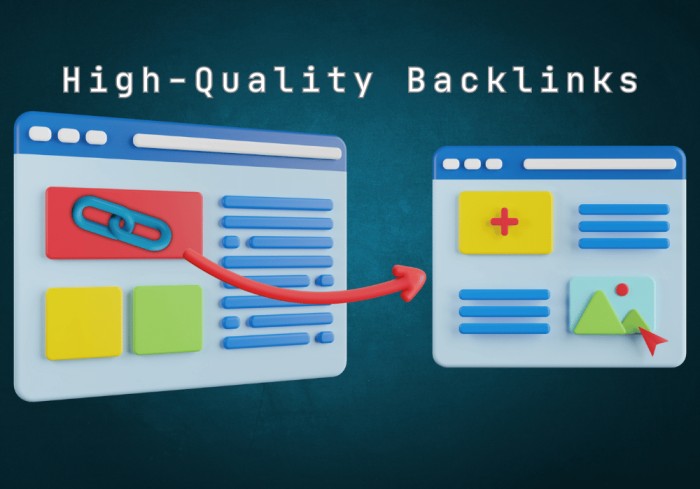In digital marketing, off-page SEO is critical in any attempt to improve the rank of your website in terms of authority and organic traffic. High-quality backlinks are one of the most potent factors of off-page SEO optimization. Backlinks are links from other sites looking at your site, and this informs the search engine that the content is valuable and should be ranked high. This guide will look at the various ways you can create high-quality backlinks so that your website can rank higher per Google standards. Boost your Google SERP rankings with Business Digitaly, your trusted partner in SEO services and online growth. Discover how we can help you climb the search engine ladder and attract more visitors today!
Understanding Backlinks and Why They Matter
Backlinks are endorsements from other websites. If a recognized website has links to your content, then search engines will know that the site containing the content is reliable. High-quality backlinks can lead to:
- Improved search engine rankings
- Increased organic traffic
- Enhanced domain authority
- Broader audience reach
Characteristics of High-Quality Backlinks

It is also important to understand that only some of the backlinks are alike, and they have different values. To be valuable, a backlink should have the following attributes:
- Relevance: These should be links from sites close to your niche or industry.
- Authority: To summarize, links from high authority websites are more valuable.
- Natural: Links should be placed naturally and organically in the content, not just inserted randomly or excessively.
- Diversity: Targeted websites that link to your website are more valuable than many links from a single website.
- Anchor Text: It is logical to include clickable text that is descriptive or related to the link’s contents.
Techniques for Building High-Quality Backlinks
1. Create Outstanding Content
Proper and useful content is the leading key to earning backlinks. This means your content will be interesting to users and relevant to other sites, which will thus be more compelled to link to your content. Focus on creating:
- In-depth articles and guides
- Infographics and visual content
- Original research and case studies
- Comprehensive resources and tools
2. Guest Blogging
Writing articles for respectable websites in the same niche as your own is known as guest blogging.This strategy allows you to:
- Reach new audiences
- Establish authority in your niche
- Include backlinks to your website
Always write relevant guest posts and ensure that you bring something of value to the audience of the host site.
3. Leverage Social Media
Use social media to promote your content and increase its reach among the intended audience. Sharing your content attracts a lot of attention, increasing your chances of getting other websites to link to it. Use platforms like:
4. Engage in Influencer Outreach
Contact people active on social media and prominent in your industry. Engage with them and ask for them to share or repost your content. Be more specific about the person you are writing to and explain why the content you present will be helpful to them.
5. Utilize Online Communities and Forums
Contribute to the online groups and discussion boards related to your operation fields. Write helpful and relevant comments and engage your content when and where it is possible. Examples include:
- Quora
- Industry-specific forums
6. Create Linkable Assets
Create content that is necessarily link-worthy. Linkable assets can include:
- Infographics
- Interactive tools
- Comprehensive guides
- Original research and data
7. Monitor Competitors’ Backlinks
Check your competitor’s backlink profiles by using the help of Ahrefs or Moz. Determine where these websites obtain their backlinks and attempt to get the same chances for your website.
8. Broken Link Building
A common strategy involves looking for broken links on similar websites and providing content that can replace the lost resource. This way, you help the website owner solve a problem while getting a valuable backlink in return.
9. Local Business Listings and Directories
Submit your business to local and relevant industry directories. Ensure that the business information put in the various places is harmonized.
Avoid Black-Hat SEO Practices

When creating backlinks, it is important to avoid black-hat SEO practices that violate Google’s guidelines, such as:
- Buying links: Buying links can have a negative impact on your search rankings.
- Link farms: Engaging in link-baiting schemes or becoming a member of websites with interconnection.
- Spammy links: Links from sites of a low standard and little or no relevance to the topic area.
Conclusion
Off-page SEO is an essential aspect of SEO, wherein creating or gaining backlinks from reputable sites with high DA and PA can improve the overall credibility and ranking of your website. High-quality content production also helps in guest blogging, social media marketing, and other white-hat SEO strategies that help you obtain backlinks, which Google forms most. Be consistent and e patient; over the years, you will see improvements in visibility and organic traffic.
Today, you can apply the above strategies to improve your off-page SEO and transform your website. Happy link-building!


